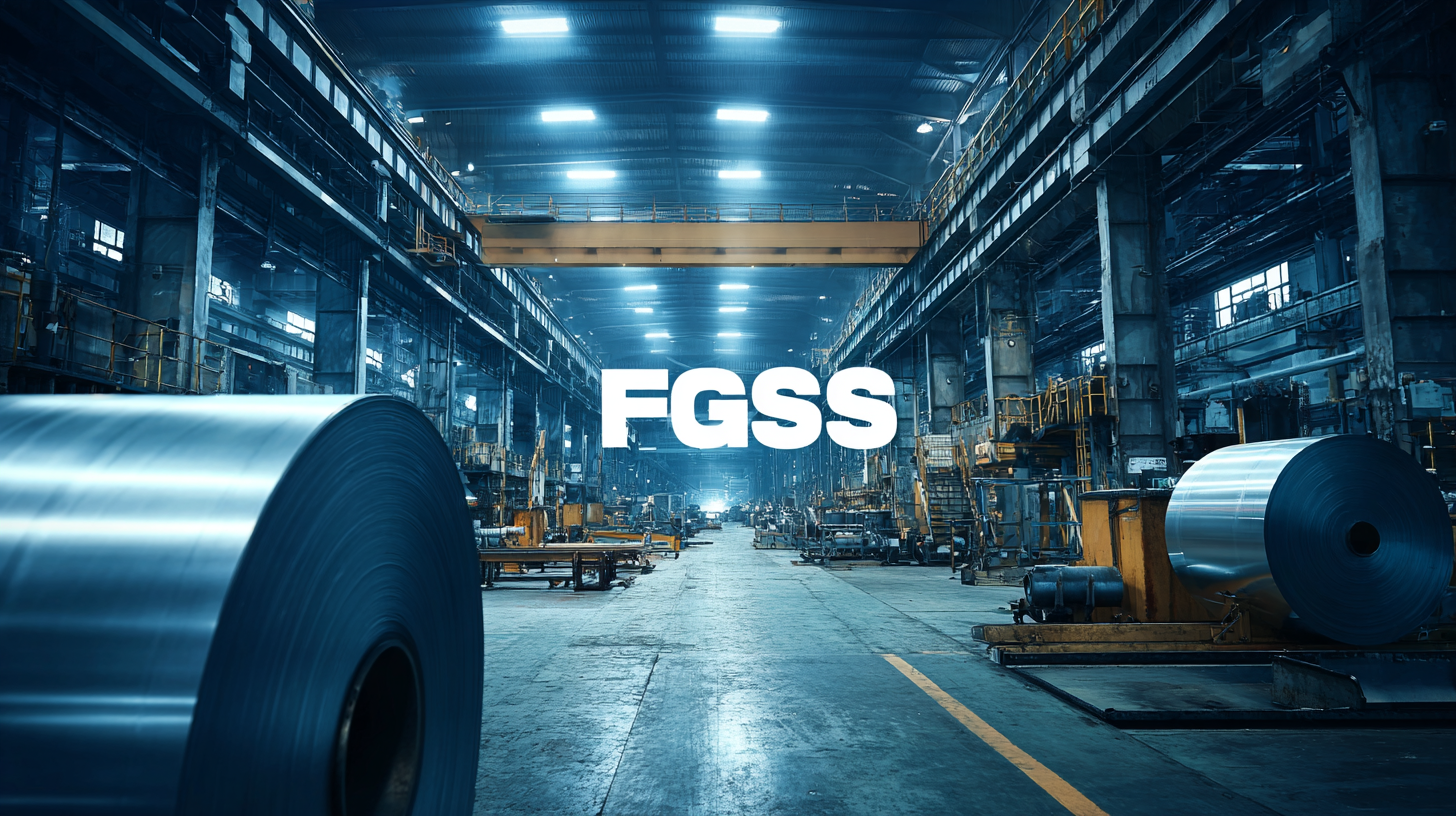In recent years, the global market for fabrication services has experienced unprecedented growth, driven by innovations in manufacturing and increasing demand for high-quality products.
According to a report by MarketsandMarkets, the fabrication services market is projected to reach USD 56 billion by 2026, growing at a compound annual growth rate (CAGR) of 5.8% from 2021.
 China's leading fabrication services stand at the forefront of this trend, offering unmatched quality and precision that cater to various industries, including automotive,
electronics, and aerospace. This capability not only highlights China's position as a manufacturing powerhouse but also underscores its commitment
to delivering excellence on a global scale. With a focus on meticulous craftsmanship encapsulated in the phrase "精工细造,中国制造,服务世界,"
China's fabrication services continue to redefine standards and meet the evolving needs of an interconnected world.
China's leading fabrication services stand at the forefront of this trend, offering unmatched quality and precision that cater to various industries, including automotive,
electronics, and aerospace. This capability not only highlights China's position as a manufacturing powerhouse but also underscores its commitment
to delivering excellence on a global scale. With a focus on meticulous craftsmanship encapsulated in the phrase "精工细造,中国制造,服务世界,"
China's fabrication services continue to redefine standards and meet the evolving needs of an interconnected world.
China's fabrication services have increasingly positioned themselves at the forefront of the global export market, driven by a combination of advanced technology and a skilled workforce. According to a recent report by the International Fabrication Association, China's market share in the global fabrication sector has surged to over over 30% in the last five years, showcasing its dominance and the unmatched quality of its services.
The country’s investment in automation and production efficiency has resulted in significant reductions in lead times, making it an attractive option for international buyers.
Moreover, the versatility of China’s fabrication services is reflected in their ability to cater to a range of industries—from automotive to electronic goods. A study published by ResearchAndMarkets indicates that the Chinese fabrication market is projected to grow at a CAGR of 8.5% through 2026, supported by robust demand from sectors like renewable energy and aerospace. This growth reinforces China's role as a critical hub for global exports, where quality, affordability, and innovation converge, setting a benchmark that competitors strive to achieve. The landscape of fabrication services will continue to evolve, ensuring that China remains a crucial player in meeting global demands.
China's fabrication services are on the cusp of significant growth, driven by several key industry dynamics. As global demand for high-quality manufacturing escalates, China's adeptness at leveraging advanced technologies plays a pivotal role. The integration of automation and artificial intelligence in production processes not only enhances efficiency but also enables unprecedented precision. This transformation is essential as industries seek rapid prototyping and customization, allowing China's fabrication services to meet diverse market needs while maintaining competitive pricing.
Moreover, the increasing emphasis on sustainability is shaping the future of fabrication services in China. As international clients demand greener solutions, the adoption of eco-friendly materials and practices is influencing operational strategies. The Chinese fabrication sector is increasingly investing in clean technologies and sustainable supply chain practices, which are crucial to meeting global sustainability standards. This commitment places Chinese manufacturers in a favorable position, catering to environmentally conscious consumers and aligning with the broader trend of sustainable development in manufacturing. By 2025, these growth drivers are expected to solidify China's status as a leading hub for high-quality fabrication services on the global stage.

With the anticipated market size of trade promotion management and optimization solutions reaching $739.77 million in 2024 and projected to double to approximately $1.46983 billion by 2032, the growth rate stands at an impressive 8.96%. This rapid expansion highlights the increasing importance of efficient trade management systems in global markets. Deloitte’s report on “The New Digital Trade Landscape” sheds light on the APAC region's significant momentum in digital trade, emphasizing the region's evolving role in shaping global commerce.
**Tip:** Businesses looking to enhance their trade strategies should consider investing in robust digital platforms that streamline operations. As the industry continues to grow, leveraging technology for real-time data analysis and supply chain transparency can provide a competitive edge.
Furthermore, global trends indicate a rising demand for e-commerce logistics, with market analyses predicting steady expansion up to 2031. This evolution underscores the need for integrated logistics solutions that cater to both domestic and international markets.
**Tip:** To capitalize on this growth, companies should adopt flexible logistics strategies that can adapt to shifting consumer behaviors and ensure timely delivery. Investing in advanced logistics technology will facilitate smoother operations and enhance customer satisfaction.
China has firmly established itself as a powerhouse in global fabrication services, offering distinct competitive advantages that significantly enhance international supply chains. One of the primary strengths lies in the country’s advanced manufacturing capabilities, which combine state-of-the-art technology with a skilled labor force. This synergy allows Chinese fabricators to deliver products with exceptional precision and quality, ensuring that international clients receive materials that meet stringent industry standards. Furthermore, China's extensive supply chain ecosystem, supported by a vast network of suppliers and logistics providers, enables rapid turnaround times and cost-effective solutions.
Another key advantage of Chinese fabrication services is their ability to adapt to market demands. As global industries evolve, the flexibility of Chinese manufacturers allows them to pivot quickly, accommodating changes in design, materials, and quantities without compromising efficiency. This responsiveness is particularly crucial in fast-paced sectors such as electronics and automotive, where innovation and speed are paramount. Additionally, competitive pricing structures, coupled with lower production costs, make China an attractive option for businesses looking to optimize their sourcing strategies while maintaining high standards of quality.

China's fabrication services are at the forefront of technological advancements, significantly influencing global export quality. As industries continue to evolve, the integration of automation and AI-driven processes is revolutionizing the fabrication sector. According to a report by McKinsey & Company, automation could enhance productivity in the manufacturing sector by up to 30% by 2030. This shift not only streamlines operations but also ensures higher precision and quality in products, making Chinese fabrication services increasingly competitive on a global scale.
In addition to automation, innovative materials and sustainable manufacturing practices are gaining traction. A recent study by Deloitte indicated that nearly 70% of manufacturers are prioritizing sustainability in their operations, reflecting a growing commitment to eco-friendly practices. This trend is expected to shape the future of the fabrication sector, as companies seek to minimize waste and reduce their carbon footprint. By embracing these advancements, China's fabrication services are not only enhancing operational efficiency but are also setting a benchmark for quality and sustainability in global exports.
